What is Wine
Wine is a sophisticated and versatile alcoholic beverage that has been enjoyed by cultures worldwide for thousands of years. Made primarily from fermented grapes, wine comes in a variety of styles, flavors, and compositions that cater to a diverse audience, from casual drinkers to connoisseurs. The creation of wine is an art form as much as it is a science, involving meticulous cultivation of vineyards, careful selection of grapes, and controlled fermentation processes to develop its unique taste and aroma.
For businesses, wine represents a lucrative commodity that can be sold in restaurants, bars, hotels, and retail outlets. It is also a popular choice for corporate gifts, celebratory events, and as a product offering for specialty stores or e-commerce platforms targeting beverage enthusiasts. The principles behind the wine trade involve understanding the preferences of different market segments, knowledge of varietals and vintages, and ensuring the correct storage and handling to maintain quality.
The production of wine is based on the fermentation of crushed grapes using various strains of yeast which consume the sugar present in the grapes and convert it into alcohol and carbon dioxide. Different types of grapes and yeasts along with specific fermentation techniques give rise to the diverse range of wines available on the market. Red wines are made from the must (pulp) of red or black grapes and are fermented with the grape skins which provide color and tannins. White wines are processed without skins, yielding a lighter color and flavor profile. There are also sparkling wines which undergo secondary fermentation to create their signature carbonation.
Types of Wine
The world of wine is rich with variety, each type distinguished by its processing methods and grape origins.
Red Wine: These wines are known for their rich colors which range from deep purples to ruby reds. Red wines are fermented with grape skins, seeds, and stems for a period that allows the color and tannins to infuse into the wine. Commonly served at room temperature, red wines are often paired with hearty meals such as red meats or strong cheeses.
White Wine: Made from green or yellow grapes, white wines are fermented without skins. They have a lighter body compared to reds and are often appreciated for their crisp flavors. White wines can be dry or sweet and are typically enjoyed chilled with lighter fare like poultry, fish, or salads.
Rosé Wine: Rosé combines aspects of red and white winemaking, as it is made from red grapes but fermented for a shorter time with the skins, resulting in a pink hue. Rosé wines can vary widely in sweetness and are perfect for spring and summer occasions.
Sparkling Wine: Characterized by its effervescence, sparkling wine undergoes secondary fermentation which traps carbon dioxide bubbles within the liquid. From the luxurious Champagne to the sweet Italian Asti, sparkling wines are often associated with celebrations.
Dessert Wine: These sweet wines are typically served with or as dessert. They may be fortified with spirits or crafted from late-harvest grapes for higher sugar content. Dessert wines like Port or Sherry offer rich flavors perfect for sipping slowly at the end of a meal.
Fortified Wine: In this category, additional alcohol is added during fermentation. This process increases both the alcohol content as well as the preservation capabilities of the wine. Examples include Port, Sherry, Madeira, and Marsala.
How to Choose Wine
Selecting the right wine for business purposes requires consideration of several factors including target audience preferences, food pairings offered by your establishment if applicable, storage facilities available to maintain wine quality, as well as price points that align with your business model.
Businesses should consider variety when selecting wine; offering a range from reds to whites to sparkling can cater to diverse customer palettes. Those operating in fine dining may focus on premium vintages or sought-after labels whereas retailers might benefit from stocking popular varietals at competitive price points.
The reputation of a wine's region can be influential; renowned regions like Bordeaux for reds or Chablis for whites carry cachet that can attract customers looking for a particular quality or experience. Also important is understanding the occasion for which your customers will be purchasing wine—whether it's for casual consumption at home or upscale events like weddings or corporate functions.
Lastly, consider sustainability practices in winemaking which may appeal to environmentally conscious consumers. Look out for certifications indicating organic or biodynamic practices that can be additional selling points for your offerings.
Best Wine on Alibaba.com
Alibaba.com stands as an international marketplace connecting businesses with an extensive selection of wholesale wines suited for various commercial needs. From boutique wineries offering unique varietals to large-scale producers with high-volume capabilities, Alibaba.com provides access to global suppliers ensuring that businesses can find products that resonate with their customers' tastes and preferences.
The platform simplifies international trade by incorporating features such as language translation and mobile-friendly buying options. With an emphasis on secure transactions through services like Trade Assurance, Alibaba.com ensures that purchases are protected until delivery is confirmed—instilling confidence in buyers sourcing products through this expansive online marketplace.
For businesses seeking to expand their beverage offerings or enter new markets with curated selections of wine, Alibaba.com presents a seamless solution. The platform not only connects buyers with vetted suppliers but also offers insights into trends through its vast product listings which reflect current demands and preferences within the wine category. Whether you're looking to enrich your restaurant's wine list or supply your retail space with globally-sourced bottles—Alibaba.com is an invaluable resource tailored to meet commercial buying needs without compromising on choice or quality.
Common FAQs for Wholesale Wine
What types of wine are most popular for resale purposes?
Red and white wines are staples for resale due to their widespread popularity and broad appeal among different customer segments. Sparkling wines also see a surge in demand around celebrations and festive seasons.
How can I determine the quality of wine when purchasing in bulk?
Quality can often be assessed by the wine's origin, the reputation of the winery, awards or ratings from wine critics, and vintage. It's also advisable to request samples for tasting before committing to large orders.
What should I consider when selecting wine for a restaurant's beverage program?
Consider your menu and select wines that pair well with your dishes. Additionally, factor in your clientele's preferences and price points to create a balanced wine list that caters to various tastes and budgets.
How does the varietal of grape affect the type of wine produced?
The grape varietal determines the basic flavor profile, acidity, color, and potential alcohol content of the wine. Each varietal comes with its unique characteristics that contribute significantly to the wine's overall taste and aroma.
What is the significance of a wine's vintage?
A vintage refers to the year in which the grapes were harvested. It is significant as it reflects the weather conditions and climate that affected the growth and quality of the grapes during that particular year.
How important is wine storage for maintaining quality?
Proper storage is critical for maintaining wine quality. Wines should be stored at consistent temperatures, away from direct sunlight, with adequate humidity to ensure their longevity and flavor preservation.
Can I customize my bulk wine order on Alibaba.com?
While Alibaba.com is a platform connecting buyers with suppliers, some suppliers may offer customization options for bulk orders. It is best to communicate directly with suppliers through Alibaba.com to discuss specific requirements.
What is fortified wine, and how does it differ from regular wine?
Fortified wine has additional alcohol added during fermentation, resulting in higher alcohol content and often sweeter flavors compared to regular wine. It includes varieties like Port, Sherry, Madeira, and Marsala.
Are there eco-friendly or organic wine options available for wholesale?
Yes, there are eco-friendly and organic wines available on Alibaba.com. Businesses interested in sustainable practices should look for certifications or supplier information indicating organic or biodynamic methods.
How does region influence the choice of wine for my business?
The region influences both the characteristics of the wine due to terroir as well as its market perception. Wines from well-known regions can command higher prices and are often sought after by enthusiasts.
What types of sparkling wines are available for wholesale purchase?
A range of sparkling wines including Champagne, Prosecco, Cava, and other less known regional varieties are available for wholesale purchase on Alibaba.com.
Should I consider seasonal trends when purchasing wholesale wine?
Yes, seasonal trends can impact consumer preferences; lighter wines may be more popular in spring and summer while fuller-bodied wines tend to be favored in cooler months. Tailoring your inventory based on seasonality can help meet consumer demand effectively.
How does bottle size affect my purchasing decisions?
Bottle size affects both pricing and consumer perception. Larger formats like magnums can be impressive for events or as gifts while standard 750ml bottles are common for everyday sales. Consider your target market and occasion when selecting bottle sizes.
Is it possible to source vegan or vegetarian wines through Alibaba.com?
Yes, you can source vegan or vegetarian wines on Alibaba.com by identifying suppliers who produce wines without using animal-derived fining agents.
What should I know about wine labeling regulations when reselling?
Wine labeling regulations vary by country and can affect how you market and label wines in your business. It's crucial to understand these regulations to ensure compliance when reselling.

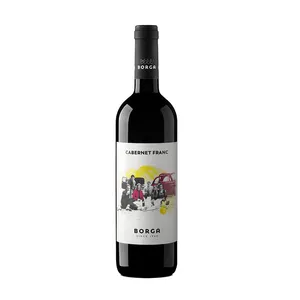







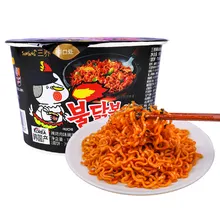



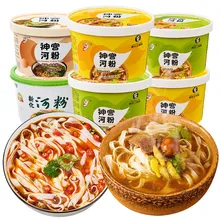




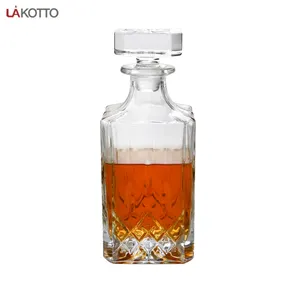







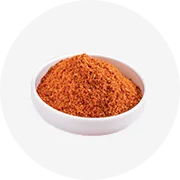

















 浙公网安备 33010002000092号
浙公网安备 33010002000092号 浙B2-20120091-4
浙B2-20120091-4